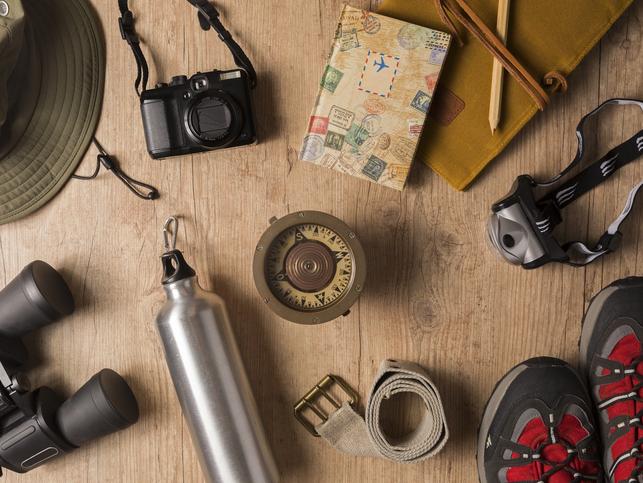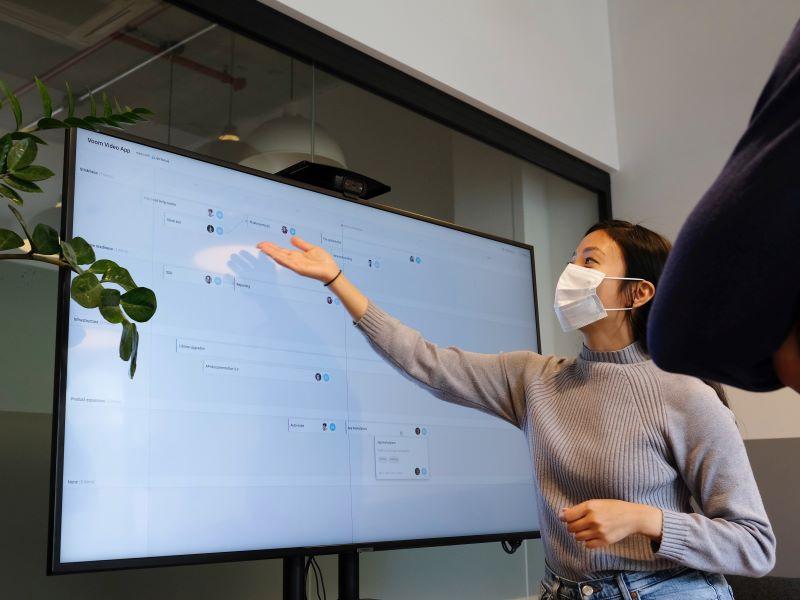
Why academics need to find adventure beyond the classroom
You may also like
An old print editor of mine used to say that until you can smell the breath of the people you interview, you have no right to call your research accurate. His mantra still resonates with my “hackademic” instincts when teaching within higher education today.
The need to free ourselves from the constraints of the lab, lecture theatre or newsroom is becoming crucial within the culture of virtual reality, Zoom meetings and artificial intelligence.
This summer I extended this hypothesis to three adventurous weeks in Zimbabwe and Zambia, to follow in the footsteps of Scottish explorer David Livingstone. While I stopped short of smelling the breath of lions, I gained insight into the complexities of the man who set out to end the African slave trade.
Why adventurous research matters
Of course, we value the moral and empirical accuracy of our research ethics committees. But there is also a case for loosening the bureaucratic bolts, allowing ourselves and our students the freedom of unconstrained exploration. This doesn’t have to be international travel. It can also mean engaging with our own community – reporting not on the community but from within it.
- How I use social media as a research tool
- Influence social change with your research by building relationships
- Community-engaged research can give a voice to marginalised people
In journalism and the creative industries, the best research often happens organically. Creative practitioners aren’t wired by Outlook calendars. In the words of the old Martini advert: “Inspiration happens anytime, anyplace, anywhere – there’s a wonderful world we can share. It’s the right one. It’s the bright one.”
If you want stale insights, apply a stale research grid, confined to rigid time constraints and a restrictive methodology that instructs creative academics to switch on their senses at 3pm on a Monday and switch them off again at 5pm. Overly rigid frameworks often diminish our students’ natural intellectual stimulation and curiosity.
How to embed an adventurous research culture
The process begins by understanding the concept of complimentary research. This isn’t designed to challenge the excellent and thorough advice shared by research ethics committees – it’s designed to enhance the process. Sometimes small, nuanced change can make all the difference.
- Think beyond the boundaries of scoring skillsets: When journalism lecturers watch Sky News at 11pm, most of us are also engaging in conscious or subconscious discourse analysis – just as when a scientific colleague goes for a weekend walk on the beach, they make vital environmental observations.
- Build flexibility into our teaching and learning: Encourage students to open their ears and eyes, not just in the lab or lecture theatre but in their social and private lives.
- Underline that exploration is ongoing: I remind my third-year journalism students that their intellectual exploration only starts on campus. It continues as they develop stories in the communities around us. A plaque on my birthplace in Hamilton states that it had been David Livingstone’s house. But it wasn’t – he only stayed in it when he returned from his overseas missions. I only discovered this by visiting the excellent David Livingstone Centre in Blantyre then visiting Victoria Falls in Zimbabwe.
Build your activity into your work-life balance
My master’s project involved going to Rangers and Celtic pubs interchangeably every Saturday to gauge the cultural and linguistic variations of both fan sets. I like football, I like beer. This felt like a good starting point for any line of academic enquiry. Lived experience like this deepens understanding the ways textbooks alone can’t.
This is more than just fieldwork, or a form of over-rationalised participant observation. It is “third eye” engagement. And it can’t always be captured in a timetabled fashion.
In Zambia, the third eye took me beyond Stephen Tomkin’s empirically detailed historical biography that tries to tell the untold story of Livingstone. I took the book to deepest Africa, the way we should take all our textbooks into the community. Don’t leave a dusty copy sitting on your desk in the office to pick it up and “imagine what it must be like” – the reality can be much more colourful.
Experiential learning without the script
It is time to challenge our understanding of experiential learning. It should go beyond the mantra that “learning by doing” involves “active participation” in “real world” or “simulated activities”.
But events shouldn’t always be staged to make them true. Some of the best insights come unplanned. When visiting my aunt in hospital recently, I listened, not just as family but as a journalist, as she tried to explain that she didn’t have a friendly nurse she could call on.
I later discovered that what she meant was that locum nurses to her meant no continuity of care and I knew I had my research cue for my next line of investigation. Sometimes research opportunities appear in the middle of life itself, if we are paying enough attention.
An enhanced form of research ethics that embraces the many positive characteristics of our committees is key – one that not only continues to embed our innovative approaches to intellectual enquiry but actively promotes empathy with students. Their naturalised research methodologies demand a new academic awareness. Out with the time constraints of the lecture theatre or the Outlook calendar.
Building an adventurous research mindset into our day-to-day academic lives can make research feel less like a scheduled task and more like an ongoing conversation with the environments we move through. For colleagues who want simple, practical ways to begin embedding this approach, here are a few starting points:
- Set a speed writing task for students, where in 30 minutes they describe their own pastimes and peer group culture.
- Analyse the findings together and highlight areas that can be developed into naturalised research.
- Plan ahead so your annual leave is open to embracing inspired locations. That routine holiday, abroad or at home, can be enjoyed even more with a small, reachable research goal that remains within your comfort zone.
- Choose accompanying reading that brings to life the places you visit and list five aspects that particularly interest you in terms of your own research.
- Communicate with other universities close to where you want to visit – reach out and liaise informally.
- Keep a logbook of ideas as and when they happen and build on them during quieter periods.
Kenneth Pratt is a lecturer at the University of the West of Scotland.
If you would like advice and insight from academics and university staff delivered direct to your inbox each week, sign up for the Campus newsletter.




